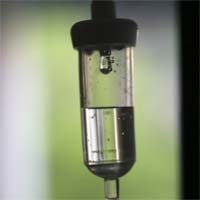Repeat CRS/HIPEC Improves Survival for Peritoneal Mesothelioma
One of the country’s top peritoneal mesothelioma surgeons has just published a study that may be good news for patients with this aggressive malignancy. Paul Sugarbaker, MD, and colleagues at the Program in Peritoneal Surface Oncology in Washington, DC studied patients with diffuse peritoneal mesothelioma who had repeated cytoreductive surgery and heated intraperitoneal chemotherapy. Their results indicate that patients with diffuse peritoneal mesothelioma can safely undergo these procedures more than once and may even improve their odds of survival. Cytoreductive surgery refers to a surgery designed to remove as much as possible of a mesothelioma tumor growing on the peritoneal lining that surrounds abdominal organs. Doctors have gotten good results by following the procedure with a wash of heated chemotherapy…









